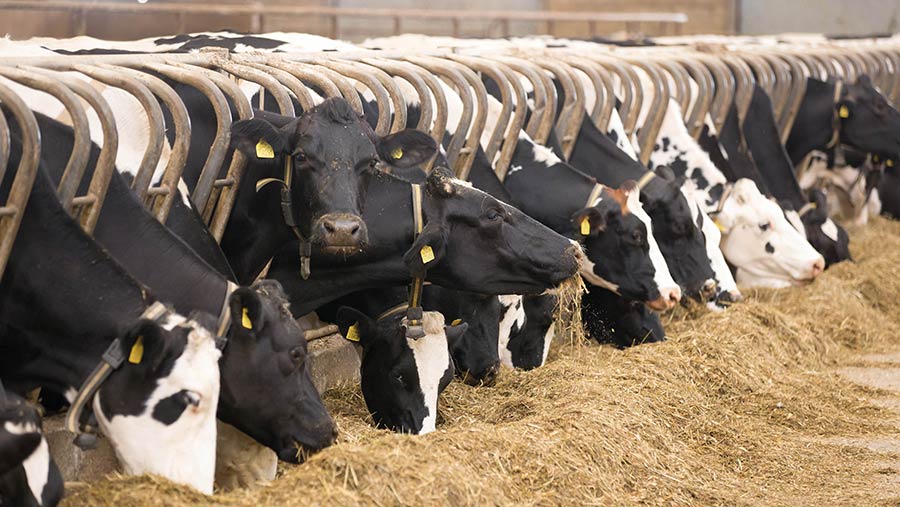Organic feed price rises make for tough decisions on farm
 © Tim Scrivener
© Tim Scrivener Organic feed prices are challenging producers, especially Omsco members who have just had a 2p/litre milk price cut.
On top of eye-watering ingredient price rises, the lorry driver shortage and the steep increase in shipping costs are adding to the pain.
“The organic market is extremely difficult,” said Sam Kelly of Kelly Farm Consulting.
The price cut, combined with the cost of organic feed and availability issues, puts significant pressure on margins that were already very tight, he said.
“For our organic cake buying group, we are seeing an 11% increase in cake cost this winter – and that’s feed I consider to be bought very well.
See also: Arla announces tough standards for organic dairy farmers
“There will be organic farms out there who weren’t so lucky with the market and will be paying significantly more.
“All of the organic dairy farms are certainly looking very closely at their options, and I think several will either make the jump back to conventional or sell the herd if they can’t find a suitable organic contract.”
At feed manufacturer ForFarmers, UK organic manager Ben Trott said that across the market, those who had booked cover earlier in the year had been able to secure winter supplies of a typical 18% bulk dairy ration in the low £400s, but now it was more like £450/t-plus.
Organic pulses
There was good availability of organic pulses from a range of sources, said Mr Trott, and the condition of the EU organic soya bean crop looked promising. However, feed manufacturers would prefer to buy more home-produced organic wheat and barley.
Organic milk production costs have gone up by about 3p/litre in the past three months and by the end of this calendar year will have risen 5p/litre, said Rob Daykin, of Daykin Partnership, who advises almost exclusively on organic farms.
Many expect some producers to quit the sector, which will lower output, potentially creating another turn of the cycle that has seen organic producer numbers fluctuate repeatedly.
“We need some stability,” said Mr Daykin, who is concerned that producers will cut compound feed and rely increasingly on variable-quality forage this winter, with potentially detrimental effects.
